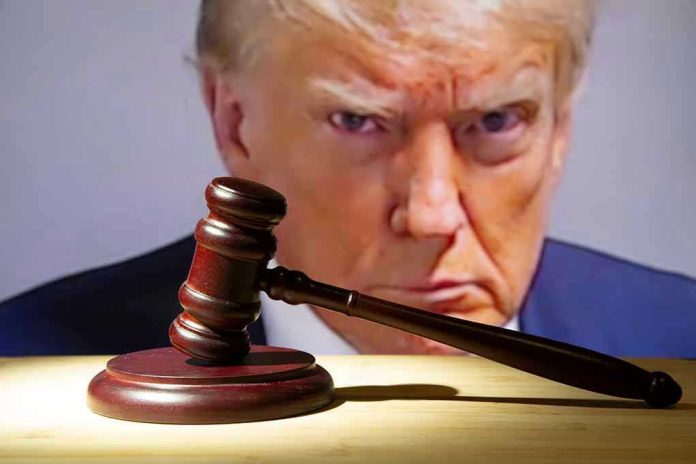
James Comey’s legal battle against federal charges spotlights a contentious clash over alleged political vindictiveness, stirring debates about the rule of law.
Story Highlights
- James Comey seeks dismissal of charges, citing political vindictiveness.
- Trump’s public criticisms are key evidence in Comey’s defense.
- The case could set precedents on political influence in prosecutions.
- Judicial review pending, highlighting legal-political dynamics.
Comey’s Legal Challenge Against Federal Charges
Former FBI Director James Comey is at the center of a legal storm as he seeks to dismiss federal charges, alleging that the case is driven by political vindictiveness. His legal team has filed motions claiming that President Trump’s public criticisms are indicative of animus, leading to a biased prosecution. This high-profile case underscores the tension between legal processes and political influence, particularly given the history of conflict between Comey and Trump.
Comey’s defense argues that the appointment of the prosecutor was unlawful, further complicating the case. The legal filings present a two-pronged strategy: highlighting vindictive prosecution and contesting the prosecutor’s appointment. These claims are rooted in the broader narrative of political interference, drawing attention to the independence of the judiciary.
Historical Context and Power Dynamics
The conflict between Comey and Trump dates back to Comey’s tenure as FBI Director, exacerbated by his handling of the Hillary Clinton email investigation and the Russia probe. Trump’s decision to fire Comey in 2017 marked a pivotal point, with subsequent public criticisms escalating the tension. These events set the stage for the current charges, reflecting ongoing political polarization and debates over legal independence.
The Department of Justice, responsible for prosecuting the case, faces challenges in maintaining impartiality amidst political pressures. As the case unfolds, it highlights the complex power dynamics between political figures and legal institutions, raising critical questions about the rule of law.
Implications for the Rule of Law and Political Discourse
The outcome of Comey’s legal challenge could have far-reaching implications. In the short term, it may set precedents regarding political influence in legal prosecutions. Long-term, it risks deepening political polarization and skepticism towards the judiciary’s independence. These developments resonate with conservatives concerned about government overreach and the erosion of constitutional values.
James Comey asks judge to dismiss federal charges claiming ‘vindictive’ case and unlawful appointment of prosecutor https://t.co/I0bSxOEGo5
— ConservativeLibrarian (@ConserLibrarian) October 21, 2025
The broader legal community is closely watching the case as it tests the judiciary’s resilience against political pressure. Legal experts emphasize its significance as a litmus test for democratic governance and the separation of powers. As debates continue, the case serves as a focal point for discussions on political accountability and the safeguarding of judicial independence.
Sources:
James Comey seeks indictment tossed, argues vindictive prosecution (CBS News)
James Comey asks judge to dismiss charges claiming vindictive case (New York Post)
Comey’s Lawyers Unveil Two-Pronged Strategy to Dismiss (Newsweek)
James Comey says DOJ is prosecuting him on Trump’s orders (Democracy Docket)







